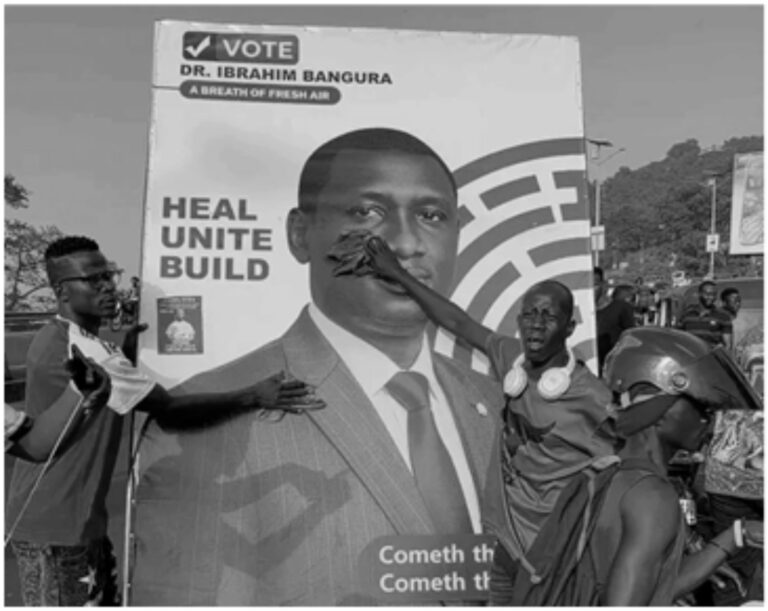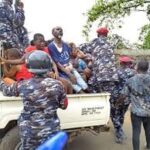Part Three – Youth Matters
By Jarrah Kawusu-Konte
The soul of a nation is best measured by how it treats its young. In Sierra Leone, wounds, bruises of that soul have been made worse by seven years of neglect, poor policy choices, and the casual betrayal of a generation that should be our greatest asset. If Part Two of my Ten Part Series focused on healing our broken health sector, Part Three must focus on the wounded youth of this nation, for without them, there can be no future to heal, unite, build.
Today, over 60 percent of Sierra Leone’s population is under the age of 25. But what should be a demographic dividend has become a demographic dilemma. Far too many young Sierra Leoneans are trapped in a vicious cycle of hopelessness, deprived of quality education, denied technical and vocational skills, and dumped into an overburdened, under resourced public service, confined to makeshift dysfunctional car wash centers, and confined to unsafe poorly crafted fishing boats – all of which have neither the potential nor the required support to improve their living circumstances. The private sector, which should have been a buoyant engine of growth and innovation, remains stifled and suffocated by bad taxation policies, inconsistent regulations, and a hostile investment climate that chokes entrepreneurial ambition and chase out foreign direct investment.
This systemic neglect has created a dangerous vacuum, one now filled by petty crime, prostitution, armed robbery, illegal and unregulated migration, and the rapid rise of synthetic drugs like Kush. It is not simply a social crisis. It is a leadership failure that has culminated in a national emergency.
Desperation and despair have driven young men and women to embark on perilous journeys through the Sahara desert and the Mediterranean Sea. Many perish along the way. Others end up as domestic slaves in the Gulf, sex slaves in Libya and Lebanon, or stateless vagrants in hostile countries where they are treated with indignity and scorn.
At home, the leaders propagandise with choreographed festivals, townhall meetings and a colloquium on leadership? A masterclass of political grandstanding, insensitivity and lack of conscience.
As Dr Ibrahim Bangura recently shared with me during one of our many deep conversations on the state of the nation: “This is not just a crisis of youth. It is a crisis of conscience. When a country fails to invest in its young people, it invests in its own downfall.” It is why, he insists, we must heal, unite, build, not in theory and dressed up political theatrics, but in policy, practice and purpose.
Dr Bangura has never been silent on this. His published works, including his policy papers on youth marginalisation, post conflict integration, and governance reform, consistently identify the root causes of youth disenfranchisement: poor educational planning, elitist economic models, and a failure to implement inclusive social policies. In his seminal contribution to the African Governance and Youth Engagement series, he outlines a compelling set of policy options, including decentralised technical and vocational hubs, restructured national service schemes, and targeted psycho social support systems to rehabilitate drug dependent youth.
He speaks as a participant observer who has seen these patterns repeated in the most fragile states across Africa, the Middle East, and the Americas. As a transitional justice expert, Dr Bangura has worked on demobilisation, disarmament, and reintegration (DDR) programmes that put young people at the centre of post war recovery. He has seen first hand what becomes of youth when the state fails, and what potential they can unlock when given a second chance.
Sierra Leone is no different. UN and World Bank data reveal a dire truth: less than 20 percent of those who enroll in junior or senior secondary school complete tertiary education. Technical and vocational education remains underfunded and undervalued. Youth unemployment hovers around 60 percent in some districts, and mental health challenges linked to economic hardship and drug addiction are on the rise. This is not abstract data. It is the lived reality of thousands of families.
But there is hope. Dr Bangura represents a new kind of leadership, one that refuses to weaponise youth or use them as pawns in the pursuit of political power. His slogan “heal, unite, build” is more than just a catchphrase. It is a call to action. He sees the youth not as a threat to be managed but as the engine of a prosperous future.
We must rally behind a leader who understands that national healing cannot happen without youth empowerment. We must unite behind a man whose work across continents has always put the young and the voiceless at the centre of development. And we must build, together, a Sierra Leone where no young person feels their only option is to drown in the Mediterranean, rot in a Libyan cell, or perish at home in a haze of Kush.
This is our moment to heal, to unite and to build. Let it not slip away.
………………………………..………
Jarrah Kawusu-Konte is a communication Specialist, former Political Editor of the We Yone Newspaper (2003 – 2006) and former Communications Manager and Director of Communications at State House (2011 – 2018). Former APC MP candidate for Koinadugu District in 2002. A son of the soil, a believer in redemption, and a servant of hope.







Diplomacy Is Key